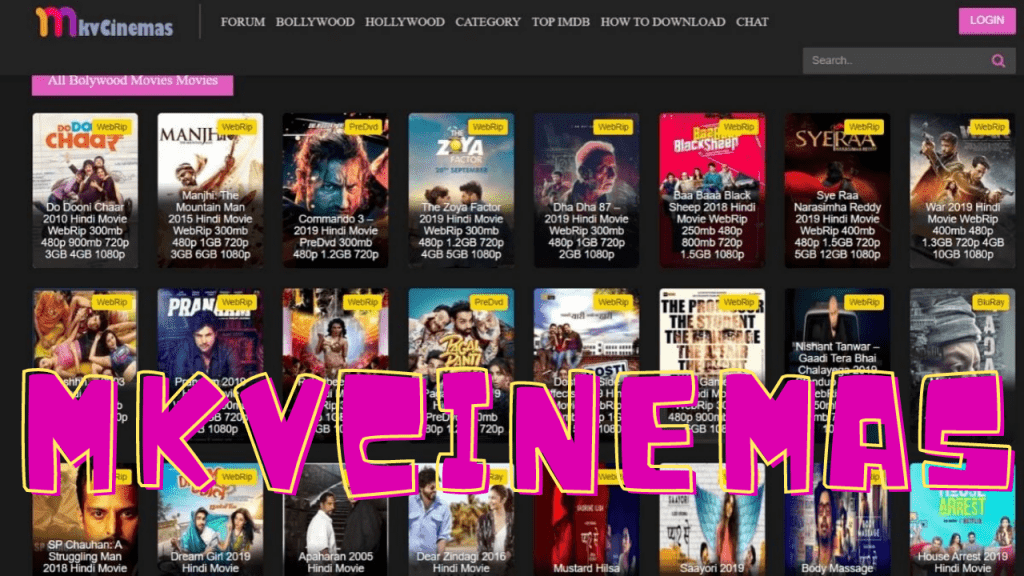In the world of digital media, the format in which we consume our favorite movies and shows plays a crucial role in the quality of our viewing experience. Cinema MKV has emerged as a popular choice among enthusiasts who crave high-quality video without compromising on sound. This versatile format offers a unique blend of features that cater to both casual viewers and hardcore cinephiles alike. As we delve into the intricacies of Cinema MKV, we will explore its benefits, how it compares to other formats, and the best ways to play and convert MKV files. With the rise of streaming services and digital downloads, understanding the MKV format can significantly enhance your entertainment experience.
Many individuals may wonder why the MKV format has gained such popularity. The answer lies in its ability to store multiple video, audio, and subtitle tracks in a single file, making it a favorite for both filmmakers and audiences. Furthermore, the Cinema MKV format supports high-definition video and lossless audio, providing a cinematic experience right from the comfort of your home. Whether you are a film buff looking to preserve your favorite titles or simply someone who enjoys quality entertainment, understanding Cinema MKV is essential.
As we navigate through this comprehensive guide on Cinema MKV, we will address common questions, share tips for optimal playback, and highlight the best software to work with this format. By the end of this article, you will be well-equipped to tackle any challenges that may come your way while enjoying your favorite films in MKV format.
What is Cinema MKV?
Cinema MKV, or Matroska Video, is a multimedia container format that allows users to store various types of data in a single file. This includes multiple video and audio tracks, as well as subtitles, making it an incredibly flexible option for viewing movies and shows. The MKV format is particularly favored for its ability to retain high-quality video and sound, ensuring that viewers receive the best possible experience.
How Does Cinema MKV Compare to Other Formats?
When comparing Cinema MKV to other popular formats such as MP4 and AVI, several key differences emerge:
- Quality: MKV files can support higher-quality video and audio compared to MP4 and AVI.
- Flexibility: MKV can hold unlimited video, audio, and subtitle tracks, while other formats may have limitations.
- Compatibility: While MKV is widely supported, some devices may struggle to play these files without additional codecs or software.
Can You Play Cinema MKV on All Devices?
While most modern media players support Cinema MKV, compatibility can vary based on the device used. Some platforms, like VLC and Kodi, can handle MKV files seamlessly, while others, like older smart TVs or media players, may require additional software or codecs. It's essential to check your device's specifications and supported formats to ensure a smooth viewing experience.
How to Convert Other Formats to Cinema MKV?
If you have videos in different formats and want to convert them to Cinema MKV, several software options allow for easy conversion:
- HandBrake: A popular open-source video transcoder that supports various formats.
- Format Factory: A versatile file converter that can handle audio, video, and image files.
- Freemake Video Converter: A user-friendly tool that simplifies the conversion process for beginners.
What Are the Benefits of Using Cinema MKV?
Choosing Cinema MKV has several advantages that enhance your viewing experience:
- High-Quality Playback: MKV files support high-definition video and lossless audio.
- Customizable Options: The ability to include multiple audio and subtitle tracks enhances accessibility.
- Future-Proofing: As technology advances, MKV remains a relevant and widely supported format.
Are There Any Downsides to Cinema MKV?
While Cinema MKV offers numerous benefits, there are a few potential downsides to consider:
- File Size: MKV files can be larger than other formats, which might be a concern for storage.
- Compatibility Issues: Some older devices may not support MKV playback without additional software.
How to Optimize Your Playback Experience with Cinema MKV?
To ensure the best viewing experience with Cinema MKV, consider these tips:
- Choose the Right Media Player: Opt for players known for their MKV compatibility.
- Update Your Codecs: Ensure your media player has the latest codecs for optimal playback.
- Adjust Settings: Configure video and audio settings in your player for the best quality.
What Is the Future of Cinema MKV?
The future of Cinema MKV looks promising as more content creators and distributors recognize the value of high-quality formats. With advancements in technology and increasing demand for digital media, MKV is likely to remain a popular choice for both filmmakers and audiences. As streaming services continue to grow, understanding and utilizing Cinema MKV will undoubtedly enhance the overall viewing experience.
Conclusion
In conclusion, Cinema MKV represents a significant development in the world of digital media, offering unparalleled flexibility and quality for movie playback. By understanding its features, benefits, and potential drawbacks, viewers can make informed choices when it comes to their entertainment. Whether you are a casual viewer or a dedicated cinephile, embracing Cinema MKV can elevate your movie-watching experience to new heights.


